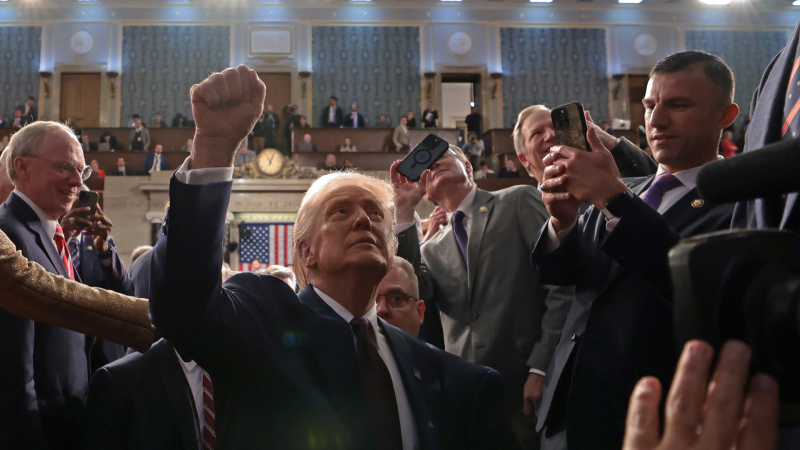Since taking office, President Trump has taken aim at the constitutional order. By conducting mass firings of civil servants, investigating and prosecuting rivals and critics and pardoning insurrectionists, Trump has plunged the country into what political scientist Steven Levitsky argues is an authoritarianism that, unlike a full dictatorship, allows for opposition but deploys “the machinery of government to punish, harass, co-opt, or sideline their opponents—disadvantaging them in every contest, and, in so doing, entrenching themselves in power.” And this playbook has been used in countries like Hungary, El Salvador, India, Turkey and others. We talk to Levitsky and historian Anne Applebaum about the lessons other countries can teach us about recognizing authoritarianism at home.
How Countries Fall Into Autocracy

U.S. President Donald Trump reacts after addressing a joint session of Congress at the U.S. Capitol. (Win McNamee via Getty Images)
Guests:
Anne Applebaum, author, "Autocracy, Inc.: The Dictators Who Want to Run the World"; staff writer for The Atlantic and a Pulitzer-prize winning historian. She is also a Senior Fellow at the Johns Hopkins School of Advanced International Studies and the SNF Agora Institute.
Steven Levitsky, professor of government, Harvard; co-author of "Why Democracies Die" and "Tyranny of the Minority: Why American Democracy Reached the Breaking Point."
Sponsored